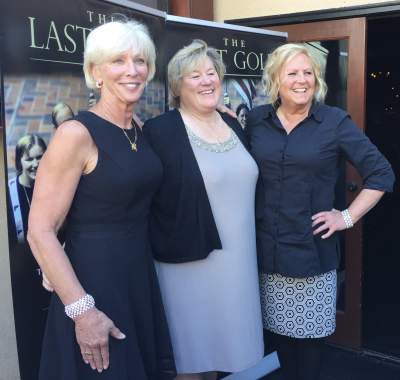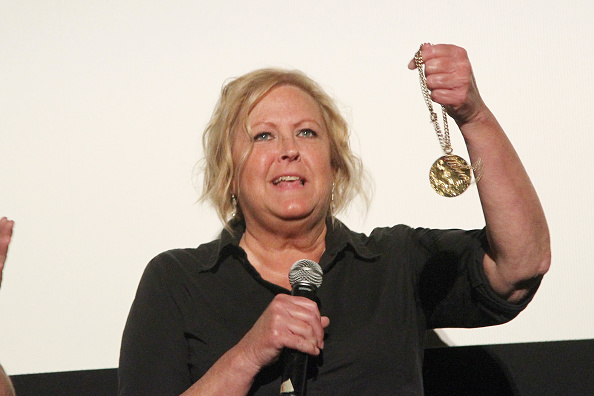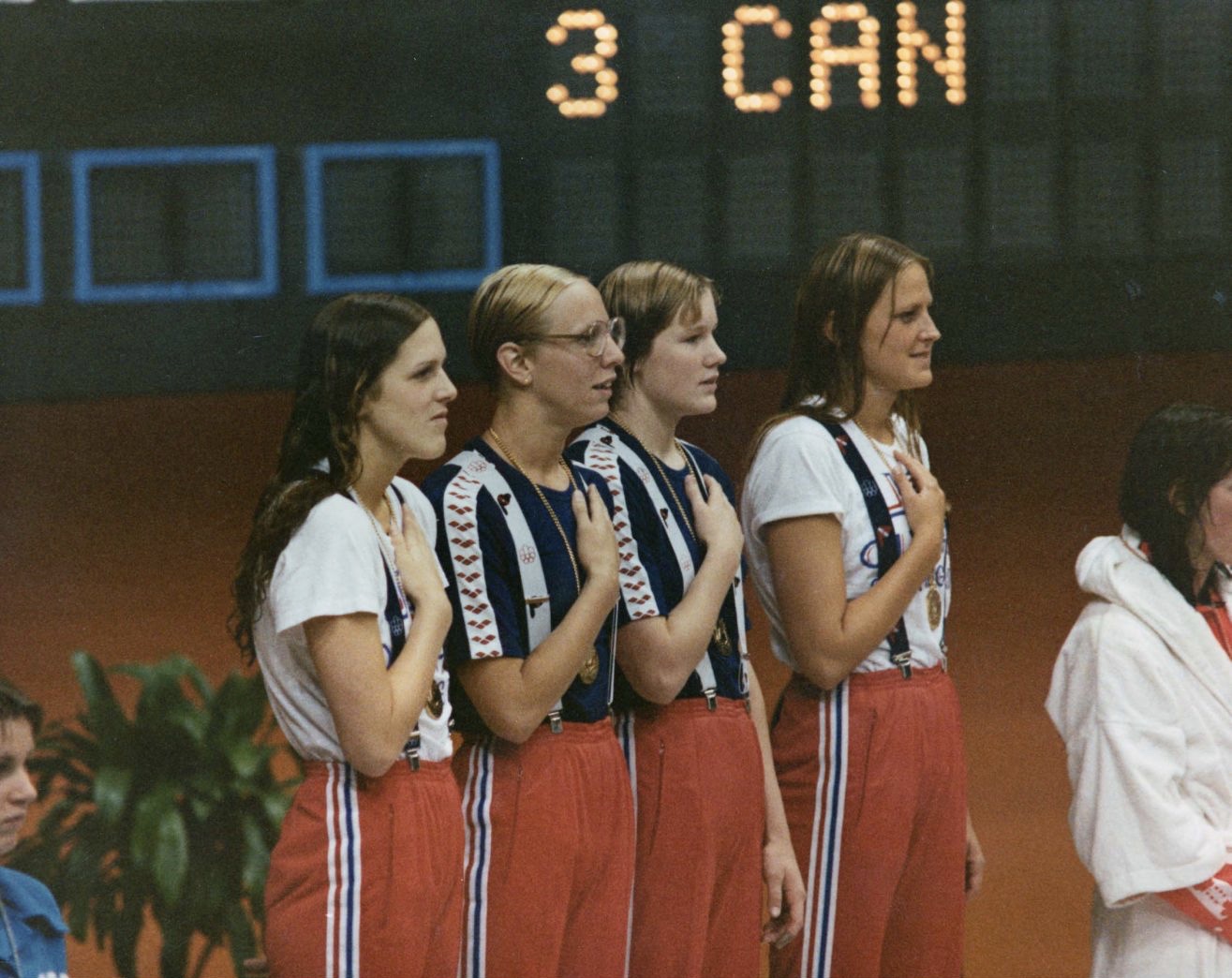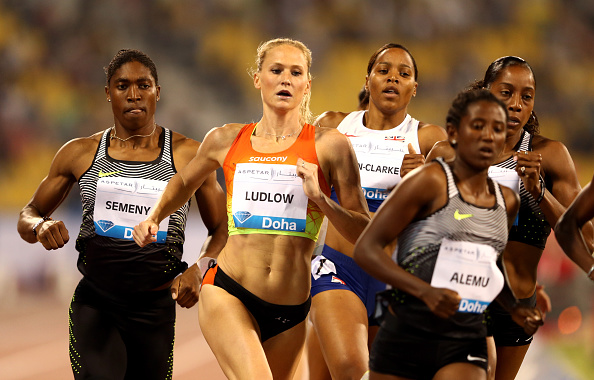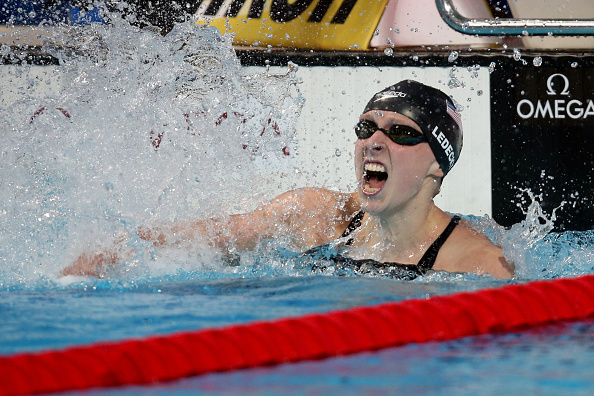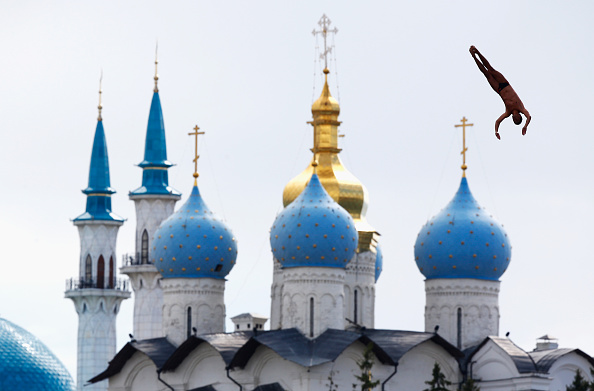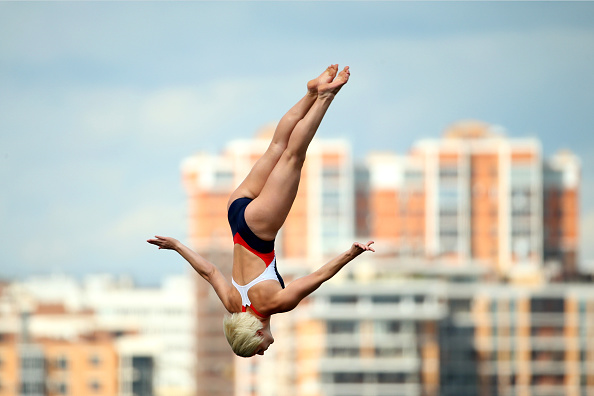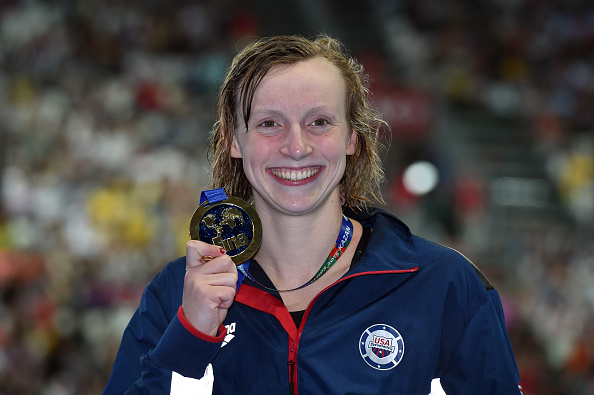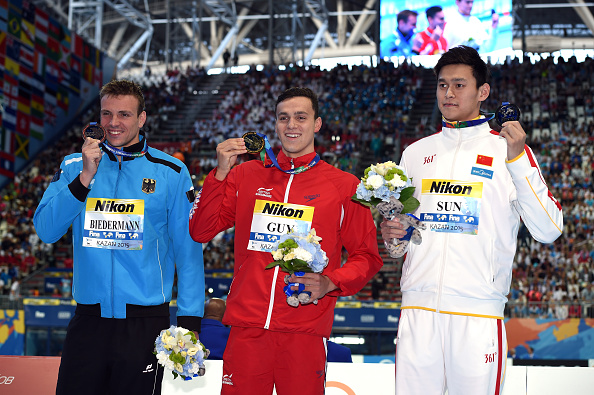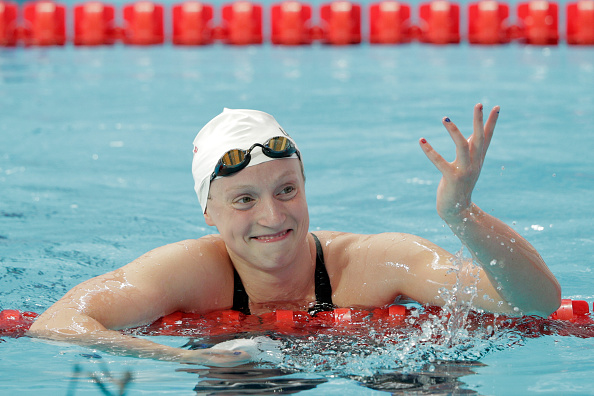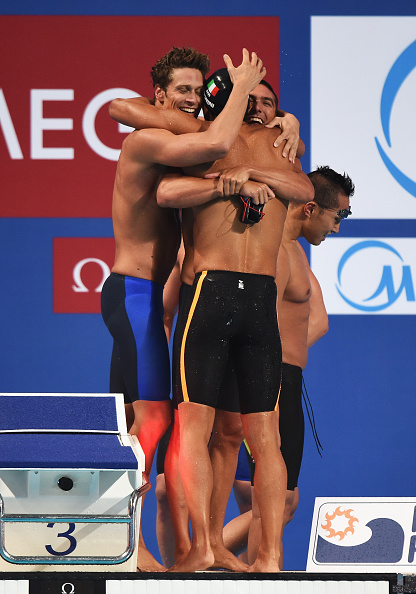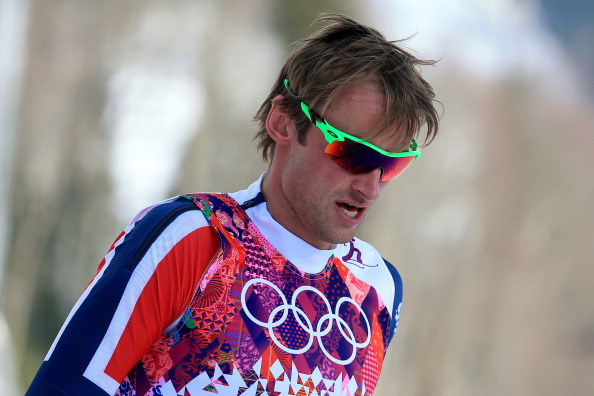The very essence of competition at the Olympics is fair play. What happens when doping makes a mockery of that ideal? When it’s all but impossible to re-write history? When the notion of who is a victim, and why, is the farthest thing from black and white — but is, instead, layered in varying shades of gray?
These and other questions are as essential now, amid allegations of state-sponsored doping in Russia, as they have been since at least 1976, at the Montreal Olympics, when East German’s female swimmers won 11 of 13 gold medals.
The world did not understand then the state-sponsored doping conspiracy it was witnessing in plain sight.
Now it does.
But, like all matters of history with pressing relevance for our time, the question is not just what happened.
It’s how to make sense of it.
And thus to go forward — in this context, in the best spirit of the Olympics, to make the world maybe just a little bit better for having shared the experience.
As we have discovered since after the fall of the Berlin Wall, the East German women were bulked-up on a powerful anabolic steroid, a little blue pill called oral turinabol.
The 1976 U.S. men’s team won 12 of 13 events. The East German women won 11 of 13. The U.S. women, like the men long a power in international swimming, won but one gold medal — the final race on the program, the 4x100 freestyle relay. (The other non-East German gold: the Soviet swimmer Marina Koshevaya, in the 200-meter breaststroke.)
That 4x1 relay — and more broadly, the swimming at those Olympics — tells the story of “The Last Gold,” a documentary that made its premier Monday night at the Los Angeles Film Festival.
The four women on the U.S. relay: Kim Peyton, Wendy Boglioli, Jill Sterkel and Shirley Babashoff. The winning time: a then-world record 3:44.82. The East Germans took second, in 3:45.5. Canada won the bronze, in 3:48.81.
Peyton died in 1986, just 29, of a brain tumor. For the other three, the showing of the film marked the first time they had been together in these 40 years.
Babashoff, arguably the central protagonist of the piece, brought her gold medal for the occasion. Sterkel, who was just 15 in 1976, said that watching the movie helped her recall so much about what happened way back when, noting that what she really remembered was Babashoff getting them free Puma shoes: “That was awesome.”
Babashoff, in her remarks to the audience at the conclusion of the film, posed the central question: why do this film, 40 years later?
She answered: “Because it’s still relevant.”
Indeed, It’s all the more important now to understand what happened then. Everyone with even a passing interest in the Olympics ought to see “The Last Gold.”
Boglioli asserted that Olympic athletes in particular have a “moral obligation,” explaining, “This is what sport is about. These are the rules.”
She also said, “I think something is amiss in sports today.”
Sterkel, who would go on to coach the women’s swim and dive teams at the University of Texas for 15 years, said, “I think I can safely say that after ’76 we haven’t experienced a clean Olympics, which is mortifying.”
She added, “For me, the tragedy is when I do watch sport … having [that] doubt in the back of mind: is this person legit?”
Having to entertain that notion, she said, is “awful.”
Truth is, doping has been going on since time immemorial. The Montreal 1976 Games were hardly the first Olympics, nor will they be the last, at which someone from somewhere tried to cheat to win.
What makes 1976 so breathtaking, of course, is the scale and the scope of the East German doping program.
This is why USA Swimming made the documentary, spending in the range of seven figures to do so. Brian T. Brown, who won 15 Emmy awards for his work at NBC, directed the project. Chuck Wielgus and Mike Unger, No. 1 and 2 for years at USA Swimming, served as executive producers. The acclaimed American actor Julianna Margulies narrates.
Going forward, the production is hugely likely to serve as a model for other sport federations, whether in or out of the United States. Why is elemental: content is now king. And every single sports federation generates massive amounts of content; that is, every single federation has a story, or stories, to tell. Why rely on outsiders when you can make a journalistically responsible and dramatically compelling vehicle yourself?
Especially one that can run on The Olympic Channel, likely to launch after the Rio 2016 Games.
The film also underscores an elemental lesson in journalism, indeed story-telling, everywhere:
Have the courage to follow your own convictions. Don’t be swayed by the mooing of other reporters in the herd — like the U.S. press corps in attendance in Montreal, which to a large degree soured on the U.S. women swimmers, seeing them as bad sports for not losing with grace, even casting Babashoff as something of a villain with the nickname “Surly Shirley.”
When she had the temerity to, you know, tell the truth.
Boglioli said, “At some point, you do wonder: how are they so fast? Why doesn’t everyone see the obvious?”
In a brief address to the crowd in Culver City, California, before the film showed, Unger said there were three reasons to make it:
To tell history.
To tell the “anti-doping message": “how to do it right,” meaning the way the U.S. team approached the 1976 Games in contrast to the East Germans. The U.S. women, to be clear, were hugely unlikely to be doping, then or now. Doping just wasn’t — and to a large degree, still isn’t — a culture with significant traction within U.S. swimming. Katie Ledecky this summer at the Rio 2016 Games, like Janet Evans in 1988 and 1992, like Babashoff in 1976: outsized talents with ferocious will and absurd work ethic.
The third reason: to pay tribute to the women on that 1976 U.S. team.
The risk with such motivation, of course, is that the film could have veered into jingoism.
It is the farthest thing from.
A key question it poses: who is a victim?
The American women, Babashoff in particular, who if the East Germans weren’t doping assuredly would have won bunches of golds?
Or the East German athletes themselves? They essentially had no choice. They had to take those blue pills.
Over the years, some leading swim writers have called for Olympic and international swim federation officials to consider yanking the 1976 medals away from the East Germans.
It’s one thing, as the International Olympic Committee does now, to re-allocate medals when someone like the U.S. track star Marion Jones admits to doping. She “won” five medals, three gold, at the Sydney 2000 Games. The world saw it live on television. But all she has now are dubious memories, not medals. She chose to cheat.
It is the case now, via the World Anti-Doping Code, that an athlete who dopes is liable for whatever is in his or her system. That is the cardinal rule. But the rewriting of history on a significant scale surely has to involve more: intent — the volitionally undertaken choice to cheat — has to serve as a significant element in assessing how and whether to re-work facts as they are, and were.
As the film suggests, and pointedly: how would stripping the East German female swimmers right a wrong that was committed not just by them but to them as well?
By extension: if the allegations accusing Russia of state-sponsored or -sanctioned sport turn out to be proven true, what to make of those athletes in a system where choice might well be, at best, limited?
In Montreal, East Germany’s Ulrike Tauber won gold in the women’s 400-meter individual medley, breaking the world record by just a touch over six seconds, a crazy drop in time; she also took silver in the 200 butterfly. In the film, she says of the use of “substances,” as she refers to the program of oral turinabol, “Surely, that affects the Olympic victory.”
She says, “I admit that honestly.”
At the same time, she says, “… who can guarantee me that it wasn’t also the case in other countries? Who can guarantee me that it was only [East Germany]?”
Answer: no one.
What is clear, another point the movie underscores, is this:
If you give anabolic steroids to male subjects, it may enhance performance to some degree. But consider: the East German men, who also were doping, didn’t run away with the 1976 meet.
If you give anabolic steroids to women, it almost surely will enhance performance, and probably to a huge degree, because androgenic steroids — by definition — are rooted in testosterone, the male hormone. Women ripped by testosterone are way more likely to defeat women who are not.
This is the basic from 1976 that leads to a considered exploration of anything and everything else.
This lesson holds consequences now well beyond Russia and allegations of a state link to a widespread doping problem. And way beyond swimming, too.
Consider the case of South African middle-distance runner Caster Semenya. To be clear, no one is suggesting that she is doping, or has been using illicit performance-enhancing substances. She simply has naturally high testosterone levels. The rules, as they are now, say she can compete as a woman. She is already running 800 meters this season in about 1:56. No one else is even really close.
Is that fair? What to do about her, or others similarly situated? What about the other women in the field who don’t have her indisputable testosterone advantage?
In 2009, when Semenya first burst onto the international scene, at the world championships in Berlin, she was depicted far too often as a — well, a freak. Reporters camped out around a trailer that served as a TV-style green room, and shouted questions as she emerged to collect her medal. She looked, understandably, frozen with fear.
In Rio, Semenya’s story is likely to emerge as a core narrative of the Games, in real time and, like the East German women, for generations to come.
The obvious will, again, be front and center.
If past is prologue, how will we tell — and how will we remember — the story?


